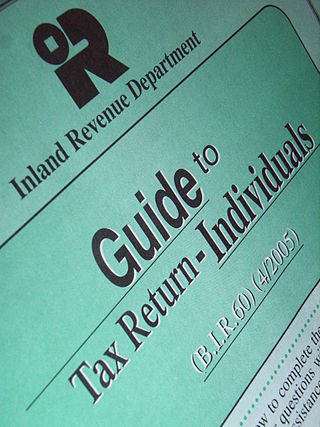Related Research Articles

William Henry Gates III is an American business magnate, investor, philanthropist, and writer best known for co-founding the software giant Microsoft, along with his childhood friend Paul Allen. During his career at Microsoft, Gates held the positions of chairman, chief executive officer (CEO), president, and chief software architect, while also being its largest individual shareholder until May 2014. He was a major entrepreneur of the microcomputer revolution of the 1970s and 1980s.

GW-BASIC is a dialect of the BASIC programming language developed by Microsoft from IBM BASICA. Functionally identical to BASICA, its BASIC interpreter is a fully self-contained executable and does not need the Cassette BASIC ROM found in the original IBM PC. It was bundled with MS-DOS operating systems on IBM PC compatibles by Microsoft.

Microsoft Corporation is an American multinational technology corporation headquartered in Redmond, Washington. Microsoft's best-known software products are the Windows line of operating systems, the Microsoft 365 suite of productivity applications, and the Edge web browser. Its flagship hardware products are the Xbox video game consoles and the Microsoft Surface lineup of touchscreen personal computers. Microsoft ranked No. 14 in the 2022 Fortune 500 rankings of the largest United States corporations by total revenue; it was the world's largest software maker by revenue as of 2022. It is considered one of the Big Five American information technology companies, alongside Alphabet, Amazon, Apple, and Meta.

Steven Anthony Ballmer is an American billionaire businessman and investor who served as the chief executive officer of Microsoft from 2000 to 2014. He is the owner of the Los Angeles Clippers of the National Basketball Association (NBA). As of November 2023, Bloomberg Billionaires Index estimates his personal wealth at around $122 billion, making him the fifth-richest person in the world.
Microsoft Bob was a Microsoft software product intended to provide a more user-friendly interface for the Windows 3.1x, Windows 95 and Windows NT operating systems, supplanting the Windows Program Manager. The program was released on March 11, 1995 and discontinued in early 1996. Microsoft Bob presented screens showing a house, with rooms that the user could visit containing familiar objects corresponding to computer applications, such as a desk with pen and paper and a checkbook. Clicking on the pen and paper would open the system's word processor.

Bob Wallace was an American software developer, programmer and the ninth Microsoft employee. He was the first popular user of the term shareware, creator of the word processing program PC-Write, founder of the software company Quicksoft and an "online drug guru" who devoted much time and money into the research of psychedelic drugs. Bob ended his Usenet posts with the phrase, "Bob Wallace ."

Origin Systems, Inc. was an American video game developer based in Austin, Texas. It was founded on March 3, 1983, by Richard Garriott and his brother Robert. Origin is best known for their groundbreaking work in multiple genres of video games, such as the Ultima and Wing Commander series. The company was purchased by Electronic Arts in 1992.
Richard Reeves Brodie is an American computer programmer and author. He wrote the first version of Microsoft Word. After leaving Microsoft, he became a motivational speaker and authored two books.
Micro Instrumentation and Telemetry Systems (MITS) was an American electronics company founded in Albuquerque, New Mexico that began manufacturing electronic calculators in 1971 and personal computers in 1975.

Employee stock options (ESO) is a label that refers to compensation contracts between an employer and an employee that carries some characteristics of financial options.

Fear of Flying is a 1973 novel by Erica Jong. It became controversial for its portrayal of female sexuality, and figured in the development of second-wave feminism.
In law, vesting is the point in time when the rights and interests arising from legal ownership of a property are acquired by some person. Vesting creates an immediately secured right of present or future deployment. One has a vested right to an asset that cannot be taken away by any third party, even though one may not yet possess the asset. When the right, interest, or title to the present or future possession of a legal estate can be transferred to any other party, it is termed a vested interest.

Employee stock ownership, or employee share ownership, is where a company's employees own shares in that company. US employees typically acquire shares through a share option plan. In the UK, Employee Share Purchase Plans are common, wherein deductions are made from an employee's salary to purchase shares over time. In Australia it is common to have all employee plans that provide employees with $1,000 worth of shares on a tax free basis. Such plans may be selective or all-employee plans. Selective plans are typically only made available to senior executives. All-employee plans offer participation to all employees.
Restricted stock, also known as restricted securities, is stock of a company that is not fully transferable until certain conditions (restrictions) have been met. Upon satisfaction of those conditions, the stock is no longer restricted, and becomes transferable to the person holding the award. Restricted stock is often used as a form of employee compensation, in which case it typically becomes transferable ("vests") upon the satisfaction of certain conditions, such as continued employment for a period of time or the achievement of particular product-development milestones, earnings per share goals or other financial targets. Restricted stock is a popular alternative to stock options, particularly for executives, due to favorable accounting rules and income tax treatment.

Salaries tax is a type of income tax that is levied in Hong Kong, chargeable on income from any office, employment and pension for a year of assessment arising in or derived from the territory. For purposes of calculating liability, the period of assessment is from April 1 to March 31 of the following year.

Fuck is an English-language profanity which often refers to the act of sexual intercourse, but is also commonly used as an intensifier or to convey disdain. While its origin is obscure, it is usually considered to be first attested to around 1475 CE. In modern usage, the term fuck and its derivatives are used as a noun, a verb, an adjective, an interjection or an adverb. There are many common phrases that employ the word as well as compounds that incorporate it, such as motherfucker, fuckwit, fuckup, fucknut, fucktard, and fuck off.

The original Visual Basic is a third-generation event-driven programming language from Microsoft known for its Component Object Model (COM) programming model first released in 1991 and declared legacy during 2008. Microsoft intended Visual Basic to be relatively easy to learn and use. Visual Basic was derived from BASIC and enables the rapid application development (RAD) of graphical user interface (GUI) applications, access to databases using Data Access Objects, Remote Data Objects, or ActiveX Data Objects, and creation of ActiveX controls and objects.
In finance, options backdating is the practice of altering the date a stock option was granted, to a usually earlier date at which the underlying stock price was lower. This is a way of repricing options to make them more valuable when the option "strike price" is fixed to the stock price at the date the option was granted. Cases of backdating employee stock options have drawn public and media attention.

Naveen K. Jain is an Indian-American business executive, entrepreneur, and the founder and former CEO of InfoSpace. InfoSpace briefly became one of the largest internet companies in the American Northwest, before the crash of the dot-com bubble and a series of lawsuits involving Jain. In 2010 Jain co-founded Moon Express where he is the Executive Chairman, and in 2016 founded Viome, where he is the CEO.
Executive compensation is composed of both the financial compensation and other non-financial benefits received by an executive from their employing firm in return for their service. It is typically a mixture of fixed salary, variable performance-based bonuses and benefits and other perquisites all ideally configured to take into account government regulations, tax law, the desires of the organization and the executive.
References
- 1 2 The Microsoft Lexicon (Ken Barnes) (archived)
- 1 2 Barr, Adam (2001-07-16). "FYIFV: A Microsoft Urban Legend". Kuro5hin. Archived from the original on 28 December 2005. Retrieved 2007-09-30.
- ↑ Andrews, Paul (1989-04-23). "Inside Microsoft - A 'Velvet Sweatshop' or a High-Tech Heaven?". Seattle Times. Retrieved 2015-08-18.
- ↑ Manes, Stephen; Paul Andrews (21 January 1994). Gates: How Microsoft's Mogul Reinvented an Industry - and Made Himself the Richest Man in America. Touchstone. ISBN 0-671-88074-8.
A popular button appeared with the initials FYIFV: Fuck You, I'm Fully Vested.
- ↑ Gleick, James (1995-11-05). "Making Microsoft Safe for Capitalism". New York Times Magazine. Retrieved 2007-09-30.
- ↑ Heilemann, John (November 2000). "The Truth, The Whole Truth, and Nothing But The Truth". Wired. Retrieved 2007-09-30.